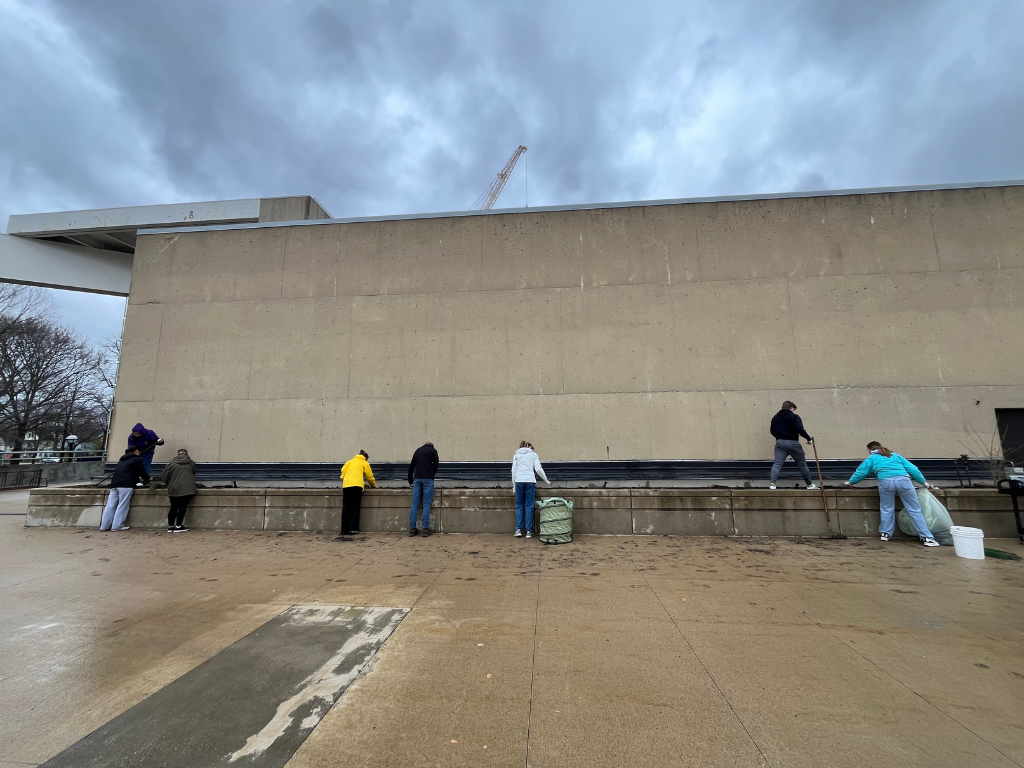
LSA Sustainability Fund
Throughout 2024, ambitious ideas from students, staff, and/or faculty allowed LSA to reduce its carbon emissions and prepare for a more sustainable future. Following this success, ongoing funds have been established to empower community members to bring their ideas to fruition. Applications are open and will be reviewed on a rolling basis until the funds are exhausted. These funds are not intended to be used for staff salary, individual professional development, stipends, honorariums, or travel.
“We are a diverse intellectual community, working together to reimagine the world and create positive, purposeful change.”
Excerpt from the LSA Vision Statement
LSA Sustainability Fund ($500-25K). The goal of this fund is to empower individuals and/or small teams within LSA to pursue ambitious projects aimed at helping LSA meet its carbon neutrality goals and/or improving sustainability awareness and practices on campus. This fund is specific to U-M LSA departments, units, student groups, staff, and/or faculty (both tenure- and non-tenure track).
Applications are accepted on a rolling basis and are reviewed monthly throughout the year until funds are exhausted. Funds will be made available for immediate use. Please note that we reserve the right to change which fund type you submit to, depending on the proposal.
All applications are submitted online and should follow the format shown in the Proposal Checklist section. To submit a proposal:
- Open the LSA Academic Information System (if this link does not work, please reach out to the LSA Sustainability team)
- Once on this page, input your information: Department, Rank, Proposal Title, and Project Start and End Date. The Proposal Abstract or Overview will be similar or the same as your Project Description.
- If you do not see your department under Department for Request, reach out to the LSA Sustainability team before submitting your application.
- For Rank, if Staff or Student select “Other” and if Faculty select your rank.
- Under the Proposal Category select Sustainability Incentive and Innovation Fund, then select either the Incentive or Innovation fund.
- On the next page, under the Specific Info box, input the amount of money you are requesting. If combined with other awards, you are also able to input the amount funded from other sources.
- Open and make a copy of the Project Overview and the Project Description, then fill out these forms with your project information. Upload these as PDFs under the Required Attachments box.
- If you have other attachments or files that support your funding request, you can upload them in the Other Relevant Attachments box.
- In the final box on this page, you are able to add collaborators and implications for different key groups that are on campus.
- Project Overview (250 words max): Provide a brief overview of your idea, written for a non-specialist audience. This overview will be made public on our website if your proposal is funded.
- Project Description (1 page max, 11pt font, single-spaced):
- A description of the project and the intended goals and/or objectives.
- A rationale for the project, including how the project will lower the carbon/water/material footprint of your unit (for incentive funds) or help LSA meet its carbon neutrality goals and/or improve sustainability awareness and practices on campus (for innovation funds).
- A brief justification for each budget item as well as the total amount requested.
Both incentive and innovation fund applications will undergo a review process carried out by LSA faculty, staff, and students. Proposals are evaluated by the following criteria:
- Relevance of project to carbon neutrality/sustainability
- Impact on LSA’s carbon neutrality and/or sustainable practices
- Budget
The Year of Sustainability team asks that all grant recipients complete a brief web form within three months of the project’s completion. These reports will be publicly displayed on our website. In addition, we will have an end-of-year celebration for all of the recipients and others that were involved in the Year of Sustainability.
Please contact our team at [email protected] if you have questions about the funds or the application process.


